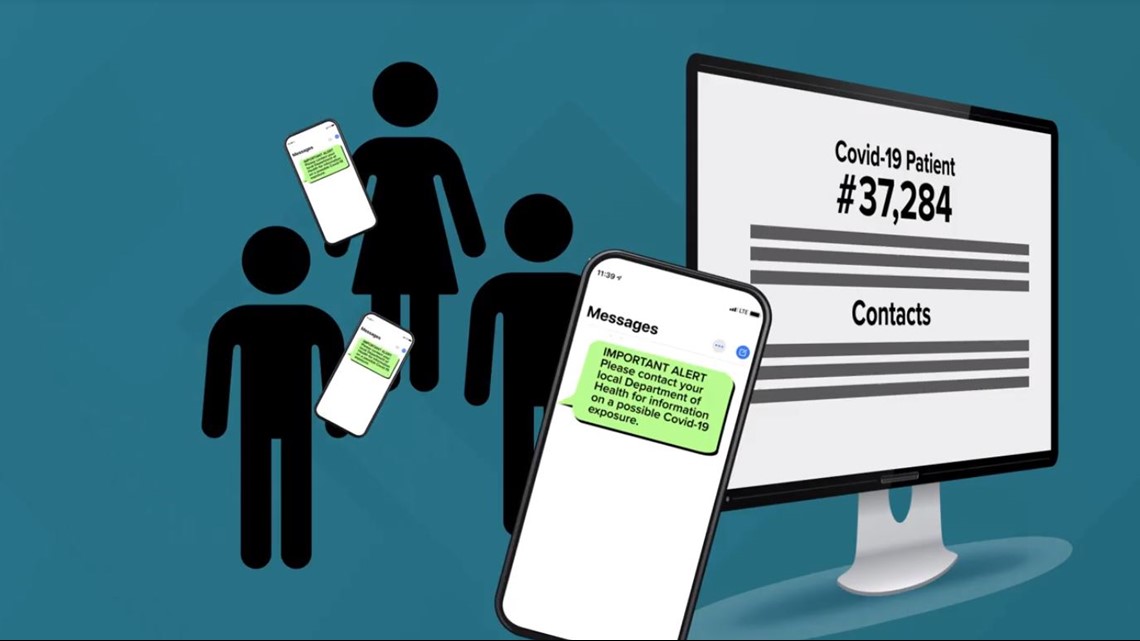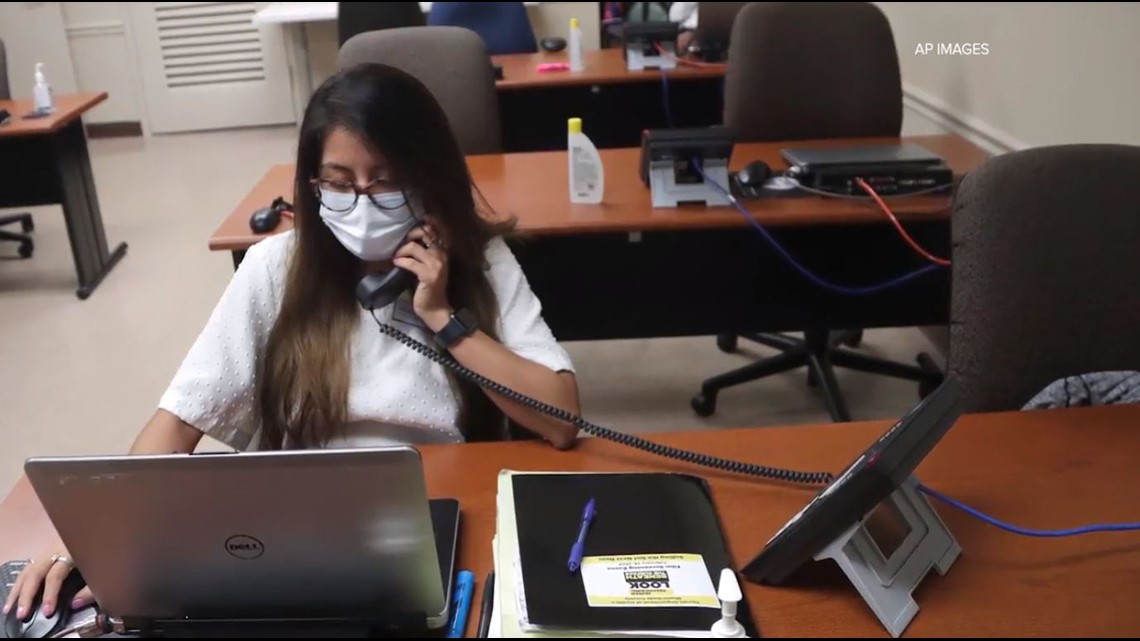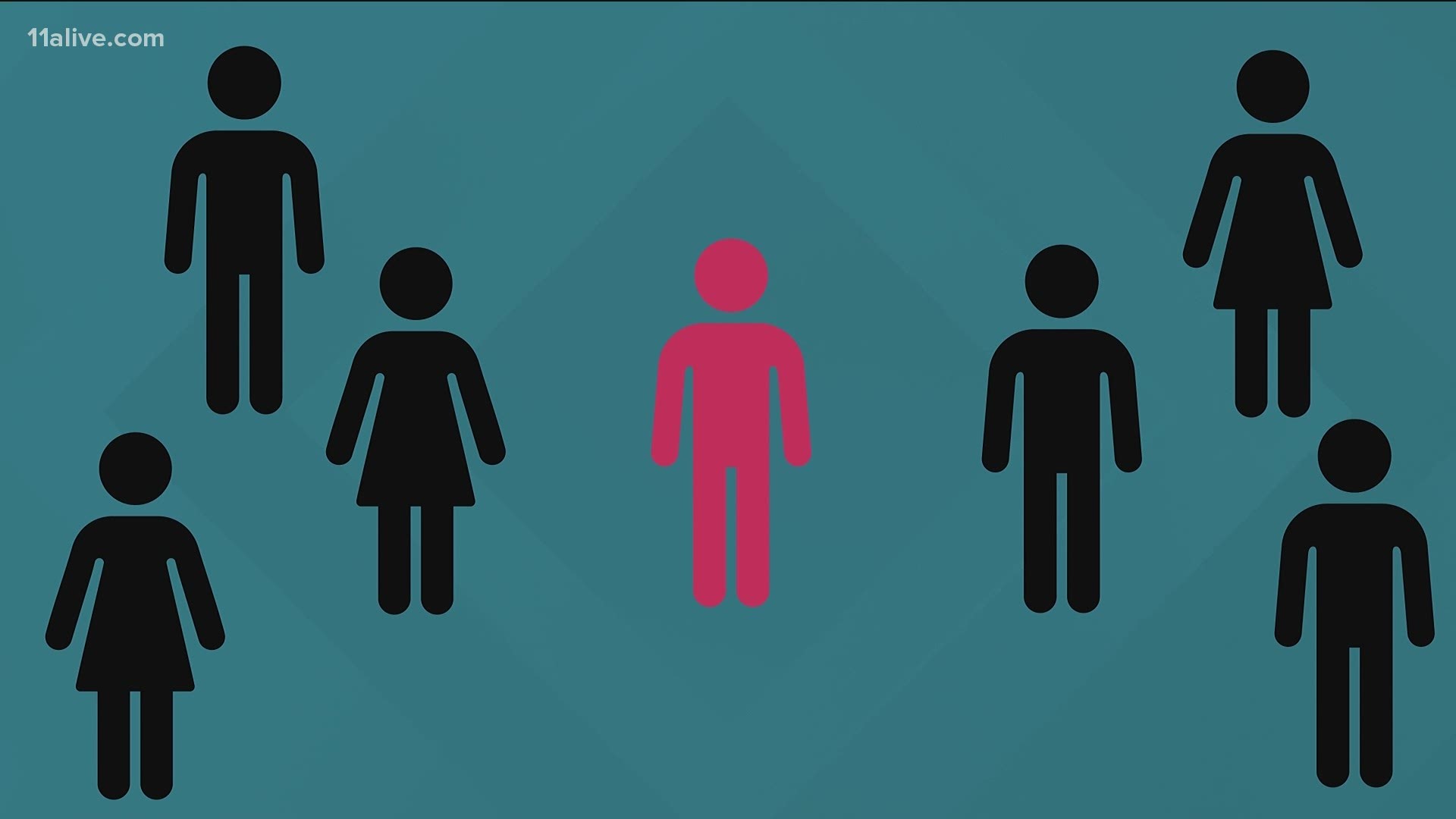ATLANTA — Hello, Georgia - Answer your phone.
That’s the message county health departments in Georgia want to send to the public as the state ramps up contact tracing, one of the first lines of defense to stop the spread of COVID-19.
While the automated call could be a telemarketer, it could also be a county public health official notifying you that you were potentially exposed to coronavirus.
Here’s how contact tracing works.
After a local health department is notified someone tests positive for COVID-19, a contact tracer tracks down the infected patient. They then request contact information of the people who were within close contact starting at least two days before exhibiting symptoms.


The Fulton County Board of Health said a “close contact” applies to people who were within six feet for 15 minutes or more at a time. For example, if a server at a restaurant learns they were infected, their customers would likely not be considered close contacts, “but his or her fellow staff, who are working in and around them in close proximity, would be close contacts,” said Fazle Khan, the chief epidemiologist at the Fulton County Board of Health.
People who work in close contact with multiple people increase their chances of infecting a lot more at the same time.
“If a person is a school teacher on the other hand, it could be 100 kids that we are potentially and other faculty and staff that could be potentially infected,” said Khan.
Identities of positive COVID-19 patients are kept anonymous, according to health officials. Those exposed are asked to self-quarantine for at least 14 days.
Some Georgia counties just started using software to monitor the infected. The voluntary pilot program sends text messages to notify people who were potentially exposed.
Bob Bednarczyk is an assistant professor of global health and epidemiology at Emory’s Rollins School of Public Health. While he applauds the technology, he said it shouldn’t replace what he calls “shoe-leather epidemiology.”


“I think there is something to be said about that individual level contact, speaking to someone who can go through the detailed information about the importance of isolation of checking your temperature regularly, avoiding contact, keeping your physical distance away from people during that period,” said Bednarczyk.
In order for contact tracing to work, not only do the potentially exposed need to be notified, but they also must agree to self-quarantine. COVID-19 symptoms can take several days to develop. An infected person could spread the virus for days before ever realizing they had it.
“This type of contact tracing gives us the ability to really get a better handle on how widespread the infections may be going in the population and give people the ability to get people into testing who may have been exposed, but may not be sensing it themselves in terms of symptoms,” said Bednarczyk.
Like many states, Georgia did not have enough staff to conduct contact tracing early in the pandemic that public health officials said could have slowed the spread.
Georgia health officials said it's close to hiring about 1,000 contract tracers.
Fulton County said it likely needs about 70. As of last week, it was training about 40 to come on-board. Khan said the county hopes to fill in the gaps by hiring students from Emory and Georgia State.
Fulton County conducted contact tracing in March, but then nearly stopped in April after staff became overwhelmed following an increase in testing and positive cases.
About 3,757 Fulton County residents have tested positive, more than any other in the state.
While Georgia said it's contact tracer jobs are temporary, Bednarczyk believes the nation will need to continue investing in these positions to keep prepared for the next pandemic.
“Seeing that we don’t have the current staffing levels to manage this may be a little bit of a wake-up call for us to see that these investments in public health,” said Bednarczyk.
11Alive is focusing our news coverage on the facts and not the fear around the virus. We want to keep you informed about the latest developments while ensuring that we deliver confirmed, factual information.
We will track the most important coronavirus elements relating to Georgia on this page. Refresh often for new information.

